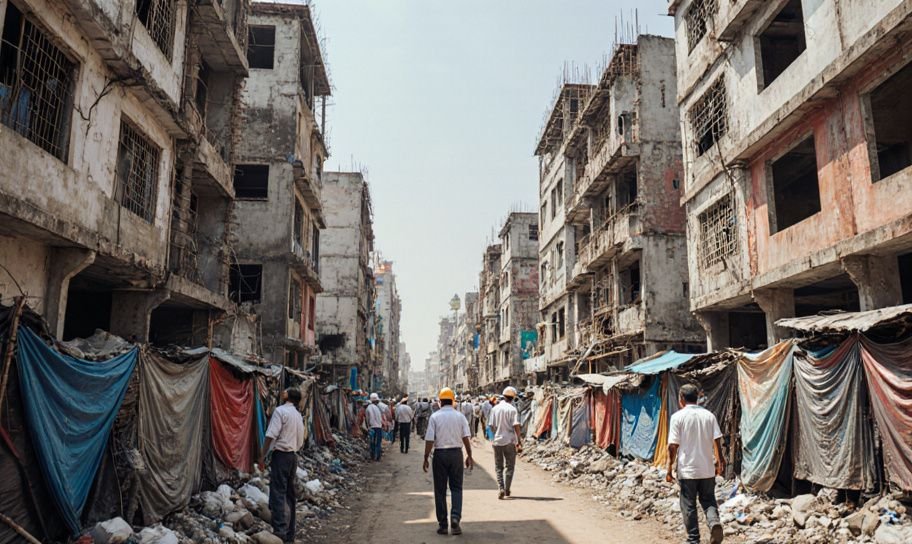
Here's the scoop on a recent court decision involving a slum rehabilitation project in Mumbai. The case was about the redevelopment of a plot in Vile Parle, Mumbai, under the Slum Rehabilitation Scheme. Let's break it down!
The main people in this legal fight were Atmaram Tukaram Shivgan and Shree Gurukrupa SRA Co-operative Housing Society through its Chief Promoter Rajendra R. Chavan. The case was heard by Judges G.S. Kulkarni and Arif S. Doctor.
Back in November 2020, Sateri Builders & Developers LLP was chosen to redevelop a plot in Vile Parle. The project aimed to provide homes for slum dwellers, including those from the nearby Dayaldas Road. The proposal faced several objections from local politicians and rival developers, causing delays.
The project faced problems when some slum dwellers who didn't agree with the plan challenged the approvals. They argued that the proposal didn't have the needed agreements and included fake names. The Apex Grievance Redressal Committee (AGRC) initially canceled the approvals, but the High Court later restored them in April 2024.
The unhappy slum dwellers took the fight to the Supreme Court, which rejected their plea in May 2024. The court confirmed that the developer would provide homes for all eligible slum dwellers, including those from the DP Road.
"The benefit of accommodation/rehabilitation will be granted to 47 occupants of the D.P. Road duly certified by the Municipal Corporation of Greater Mumbai."
Despite the Supreme Court's decision, political interference continued. A complaint by a local MLA led to a notice for a meeting to discuss canceling the developer's permissions. The AGRC upheld eviction orders for non-cooperating slum dwellers, but execution was stalled due to alleged political pressure.
The High Court, in its recent decision, sided with the developer. It criticized the interference by rival developers and politicians, emphasizing the welfare nature of the Slum Act.
"Slum rehabilitation schemes are not ordinary real estate projects, but they involve a public purpose."
The court directed the authorities to finalize necessary documents and issue a commencement certificate, allowing the project to proceed. It also stopped further interference from rival developers and political figures.
The court ruled in favor of the developer, allowing the project to go forward while ensuring eligible slum dwellers are provided with homes. The decision also put a stop to interference from rival developers and politicians.